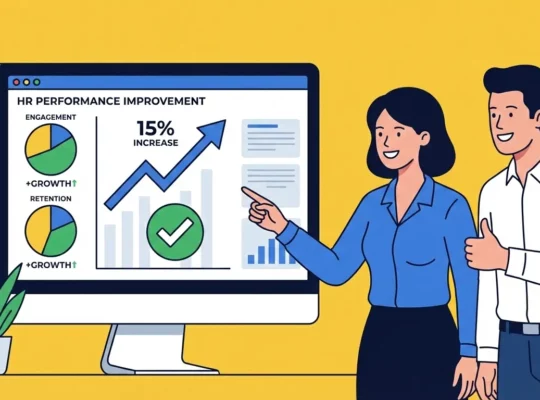A poor candidate experience can have far-reaching consequences for any organization. In fact, 60% of job seekers report that a negative candidate experience would make them less likely to purchase products or services from that employer. Candidate experience refers to a job seeker’s overall perception of your organization throughout the hiring process. A poor candidate experience can quickly tarnish your employer brand, increase hiring costs, and drive away top talent, all of which can significantly impact your company’s bottom line. This article will explore the implications of poor candidate experience and provide actionable strategies for improvement.
- Understanding Poor Candidate Experience
- The Impact of Poor Candidate Experience on Businesses
- How to Improve Candidate Experience
- Measuring and Monitoring Candidate Experience
I. Understanding Poor Candidate Experience
What Constitutes Poor Candidate Experience
A poor candidate experience often stems from several key factors that can turn even the most enthusiastic job seekers away from your organization. These factors include:
- Lack of communication: Candidates left in the dark during the hiring process are more likely to develop negative perceptions of your company.
- Complicated application processes: Lengthy or confusing application forms can discourage candidates from applying.
- Unprofessional behavior during interviews: Rude or disorganized interviewers can make candidates feel disrespected and undervalued.
- Lack of transparency regarding job roles and compensation: Unclear or misleading job descriptions lead to misunderstandings and disappointment.
- Discrimination and biases in the hiring process: Candidates who experience bias are less likely to accept a job offer and more likely to share their negative experiences online.
Common Causes of Poor Candidate Experience
Several underlying issues contribute to a poor candidate experience:
- Outdated recruitment processes: Relying on old-fashioned methods can lead to inefficiencies and frustration for candidates.
- Lack of investment in recruitment technology: Without modern tools like an applicant tracking system (ATS), managing candidate communication and tracking progress becomes cumbersome.
- Poor training for HR and hiring managers: When those responsible for recruitment lack proper training, they may inadvertently create a negative experience for candidates.
II. The Impact of Poor Candidate Experience on Businesses
Damaged Employer Brand
A poor candidate experience can severely damage your employer brand, which is how your company is perceived by both current and potential employees. Negative experiences often lead to bad reviews on platforms like Review.jobs, Glassdoor, LinkedIn, and social media. These reviews can deter top talent from applying to your organization and can take years to repair. When your employer brand is damaged, your company becomes less attractive to high-quality candidates, making it more challenging to fill critical roles.
Loss of Top Talent
Top talent is in high demand, and a poor candidate experience can drive these highly qualified candidates straight into the arms of your competitors. Studies show that candidates who have a negative experience during the hiring process are more likely to reject a job offer, even if it’s their preferred company. This loss of top talent not only weakens your workforce but also increases the likelihood that your competitors will gain a competitive edge by hiring the very candidates you missed out on.
Increased Hiring Costs
A poor candidate experience often leads to prolonged hiring processes, which can drive up costs significantly. When candidates withdraw from the process or reject job offers, companies must restart the recruitment process, increasing time-to-hire and cost-per-hire metrics. Additionally, the longer it takes to fill a role, the more strain it puts on current employees, leading to potential burnout and decreased productivity.
Negative Impact on Employee Morale
Current employees are not immune to the effects of a poor candidate experience. When they hear about or witness negative experiences, it can lead to decreased morale and a loss of confidence in the organization’s leadership. This drop in morale can result in higher turnover rates and lower productivity, as employees may begin to question their own job security or the company’s values.
III. How to Improve Candidate Experience
Streamlining Communication
Clear and consistent communication is key to improving the candidate experience. Candidates appreciate timely updates on their application status and next steps in the hiring process. Implementing an applicant tracking system (ATS) can help automate communication, ensuring candidates are kept informed at every stage. Regularly updating candidates on their status, even if there is no news, can significantly improve their perception of your company.
Simplifying the Application Process
A complex application process can be a significant barrier to attracting top talent. To simplify this process, consider the following tips:
- Reduce the number of required fields: Only ask for essential information.
- Ensure mobile-friendliness: A large portion of candidates will apply using their smartphones, so ensure your application process is seamless on mobile devices.
- Integrate platforms: Allow candidates to apply using their LinkedIn profiles or other social media accounts to streamline the process.
Conducting Professional and Inclusive Interviews
Interviewing is often the most critical stage of the hiring process. To create a positive candidate experience, ensure your interviewers are well-trained in both the technical aspects of the job and in diversity, equity, and inclusion (DEI) principles. Standardizing the interview process can also help ensure consistency and fairness, making sure every candidate is evaluated on the same criteria.
Being Transparent and Honest
Transparency is crucial in building trust with candidates. Be clear about job roles, responsibilities, and compensation from the outset. A well-crafted job description should set realistic expectations, so candidates know what to expect. Additionally, discussing compensation and job responsibilities openly during the interview process can help avoid misunderstandings later on.
Reducing Time-to-Hire
A lengthy hiring process can lead to candidate frustration and disengagement. To reduce time-to-hire, streamline your recruitment process by eliminating unnecessary steps and making faster decisions. Data-driven recruitment strategies can help identify bottlenecks in your hiring process and suggest areas for improvement. Keeping candidates engaged throughout the vetting process by providing regular updates and maintaining open lines of communication is also essential.
Leveraging Employee Reviews for Actionable Feedback
Employee reviews are a powerful tool for gaining actionable insights into your hiring process. By understanding how current and former employees perceive your organization, you can identify areas of improvement in your recruitment strategy and overall candidate experience. Authentic feedback from employees can highlight gaps in communication, transparency, and professionalism during the hiring process, providing a roadmap for enhancements that can lead to a more positive candidate experience.
Introducing Review.jobs: Your Partner in Employee Review Management
To effectively gather and utilize employee feedback, a robust platform like Review.jobs is essential. Review.jobs is a certified employee review management platform designed to help companies collect, manage, analyze, and showcase authentic employee reviews. Here’s how Review.jobs can play a crucial role in improving your candidate experience:
- Collect Authentic Feedback: Review.jobs makes it easy to collect verified and anonymous employee reviews, ensuring you receive genuine insights into your company culture. The platform offers diverse collection methods, including employee satisfaction surveys, custom review collection tools, and API integrations, for comprehensive feedback.
- Manage and Respond Efficiently: With Review.jobs’ centralized dashboard, you can efficiently manage reviews, track employee sentiment, and respond to feedback in real-time. This feature ensures that employee concerns are addressed promptly, fostering a culture of transparency and continuous improvement.
- Analyze for Actionable Insights: The platform’s advanced analytics and reporting tools allow you to delve deep into employee feedback, identify trends, and track progress over time. By leveraging these insights, you can make informed decisions that directly impact the candidate experience, such as streamlining communication or improving the interview process.
- Showcase Positive Feedback: Review.jobs enables you to highlight authentic employee testimonials on your company profile, career pages, and social media channels. By showcasing positive reviews, you can enhance your employer brand, attract top talent, and demonstrate your commitment to a positive workplace culture.
The Impact on Candidate Experience
By integrating employee reviews into your candidate experience strategy, you not only improve your hiring process but also build a stronger, more transparent employer brand. Candidates are more likely to engage with and trust a company that actively listens to and values its employees’ feedback. This proactive approach to managing employee reviews can lead to higher candidate satisfaction, better hiring outcomes, and a more positive overall candidate experience.
IV. Measuring and Monitoring Candidate Experience
Tools and Techniques
Measuring candidate experience is essential to understanding how your hiring process is perceived and identifying areas for improvement. Some effective tools and techniques include:
- Candidate surveys and feedback loops: These can provide direct insights from candidates about their experience during the hiring process.
- Analytics from recruitment software: Using tools like an ATS can help track key metrics, such as time-to-hire, candidate dropout rates, and offer acceptance rates.
Continuous Improvement
The candidate experience should not be a one-time focus but rather an ongoing process of improvement. Establishing a feedback mechanism that allows for continuous monitoring and enhancement of the candidate experience is crucial. By making candidate experience a key metric in your overall recruitment strategy, you ensure that it remains a priority and that your organization continuously strives to attract and retain top talent.
The cost of a poor candidate experience extends beyond just losing out on top talent—it can damage your employer brand, increase hiring costs, and negatively impact employee morale. However, by taking proactive steps to improve communication, streamline processes, and leverage employee feedback, organizations can create a positive candidate experience that enhances their reputation and attracts top talent. Review.jobs is here to help you manage and improve your candidate experience with its robust employee review management platform, ensuring your company remains a top choice for job seekers.





